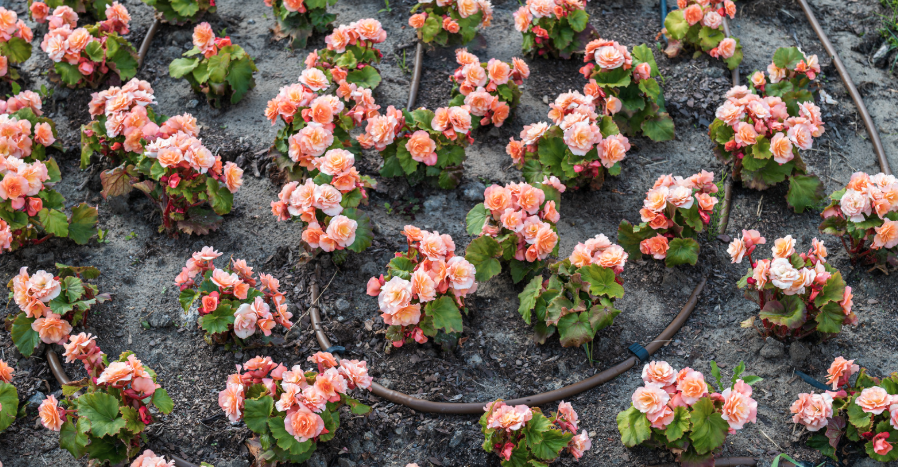5 Irrigation Myths Debunked: What Every Florida Homeowner Should Know
As a Florida homeowner, maintaining a lush and vibrant landscape is essential, especially in a climate that can be both hot and humid. However, misconceptions about irrigation systems can lead to inefficient watering practices, wasted resources, and unhealthy plants. In this blog post, we will debunk five common irrigation myths every Florida homeowner should know to ensure their gardens thrive while conserving water.
Myth 1: Irrigation Systems Waste Water
One of the most pervasive myths is that irrigation systems waste water. While it’s true that poorly designed or improperly maintained systems can lead to water waste, modern irrigation technology is designed to be efficient. Drip irrigation and smart sprinkler systems are excellent examples of how homeowners can water their landscapes effectively without overusing resources.
In Florida, where water conservation is crucial due to seasonal droughts, efficient irrigation methods can significantly reduce water consumption. For instance, drip irrigation delivers water directly to the plant's root zone, minimizing evaporation and runoff. By investing in a quality irrigation system and regularly maintaining it, homeowners can achieve a beautiful landscape while being environmentally responsible.
Moreover, using timers and rain sensors can help automate your watering schedule. These devices ensure that your system only operates when necessary, reducing water waste. By optimizing your irrigation setup, you can enjoy a thriving garden while conserving one of our most precious resources.
Myth 2: All Plants Need the Same Amount of Water
Another common misconception is that all plants have the same watering needs. In reality, different types of plants require varying amounts of water based on their species, size, and growth stage. For example, native Florida plants are often more drought-resistant and require less frequent watering than tropical species.
To ensure your landscape thrives, it’s essential to group plants with similar watering needs together. This practice, known as hydrozoning, allows for more efficient irrigation. By adjusting your system to deliver the appropriate amount of water for each plant type, you can promote healthy growth while conserving water.
Additionally, understanding soil types in your garden can also influence how much water your plants need. Sandy soils drain quickly and may require more frequent watering, while clay soils retain moisture longer. Recognizing these differences and adjusting your irrigation practices accordingly can create a healthier environment for your plants.
Myth 3: More Water Equals Healthier Plants
Many homeowners believe that the more water they provide their plants, the healthier they will be. This myth can lead to overwatering, which is detrimental to plant health. Overwatering can cause root rot, fungal diseases, and nutrient leaching from the soil.
In Florida’s humid climate, where rainfall is abundant during certain seasons, it’s crucial to monitor soil moisture levels before watering.
Using a moisture meter or simply checking the soil with your fingers can help determine when your plants genuinely need water. By following a good watering schedule and knowing what your plants need, you can prevent overwatering. This will help create a healthier garden.
By implementing deep watering techniques encourages roots to grow deeper into the soil where moisture is more consistent. This practice helps plants withstand dry spells and reduces the frequency of watering sessions.
Myth 4: Professional Irrigation Systems Are Too Complicated for Homeowners
Many people shy away from installing irrigation services because they believe it’s too complex or requires professional expertise. While there are certainly advanced systems available that may require professional installation, many options are user-friendly and designed for DIY installation.
For instance, simple drip irrigation systems are available at garden centers and online retailers. These kits typically come with clear instructions and all necessary components for installation. Additionally, many modern sprinkler systems feature smart technology that allows homeowners to control their watering schedules via smartphone apps. With some research and preparation, homeowners can install an efficient irrigation system tailored to their landscape needs.
Moreover, local resources such as workshops or online tutorials can provide valuable guidance for those looking to install their own systems confidently. Engaging with local gardening communities or forums can also offer insights into best practices specific to Florida's climate.
Myth 5: You Only Need to Water Your Lawn When It Looks Dry
A prevalent myth among homeowners is that they should only water their lawns when they appear dry or brown. While visual cues can indicate a need for watering, relying solely on appearance can lead to inconsistent watering practices.
Grass and plants may show signs of stress before they are severely dehydrated. Instead of waiting for visible signs of dryness, it’s better to establish a regular watering schedule based on local weather patterns and seasonal changes. In Florida's climate, deep watering once or twice a week is often sufficient for maintaining healthy grass without encouraging shallow root growth.
Additionally, consider using rain gauges or smart irrigation controllers that adjust watering schedules based on recent rainfall. This technology helps ensure your lawn receives adequate moisture without overwatering during wet periods.
Final Thoughts
Understanding the truth behind these common irrigation myths is essential for every Florida homeowner looking to maintain a healthy landscape while conserving water resources.
Investing in irrigation technology, such as drip systems or smart controllers, improves your landscape's health. It also supports sustainable practices in Florida's unique climate. For more information on effective irrigation solutions tailored for Florida homeowners or assistance with installation in Sarasota, visit Irrigation Supply SRQ.

